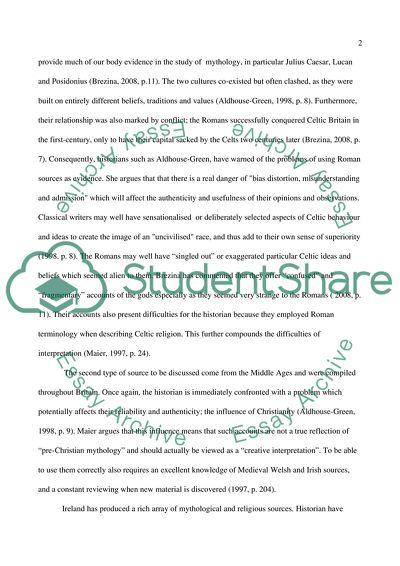Cite this document
(Our Knowledge of Celtic Mythology Essay Example | Topics and Well Written Essays - 1000 words, n.d.)
Our Knowledge of Celtic Mythology Essay Example | Topics and Well Written Essays - 1000 words. Retrieved from https://studentshare.org/history/1564827-why-despite-seemingly-copious-sources-is-our-knowledge-of-celtic-mythology-so-fragmentary
Our Knowledge of Celtic Mythology Essay Example | Topics and Well Written Essays - 1000 words. Retrieved from https://studentshare.org/history/1564827-why-despite-seemingly-copious-sources-is-our-knowledge-of-celtic-mythology-so-fragmentary
(Our Knowledge of Celtic Mythology Essay Example | Topics and Well Written Essays - 1000 Words)
Our Knowledge of Celtic Mythology Essay Example | Topics and Well Written Essays - 1000 Words. https://studentshare.org/history/1564827-why-despite-seemingly-copious-sources-is-our-knowledge-of-celtic-mythology-so-fragmentary.
Our Knowledge of Celtic Mythology Essay Example | Topics and Well Written Essays - 1000 Words. https://studentshare.org/history/1564827-why-despite-seemingly-copious-sources-is-our-knowledge-of-celtic-mythology-so-fragmentary.
“Our Knowledge of Celtic Mythology Essay Example | Topics and Well Written Essays - 1000 Words”, n.d. https://studentshare.org/history/1564827-why-despite-seemingly-copious-sources-is-our-knowledge-of-celtic-mythology-so-fragmentary.


